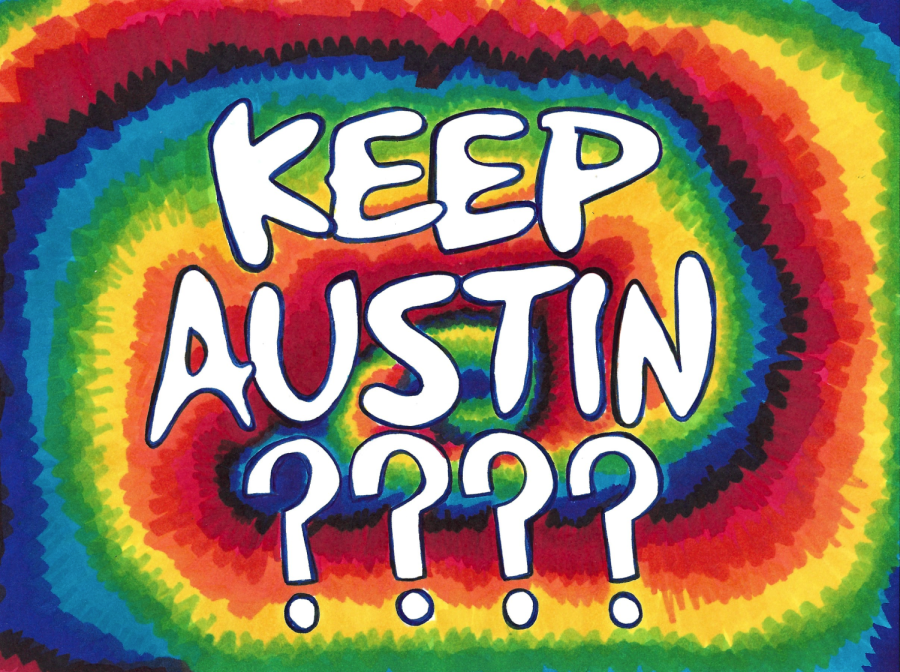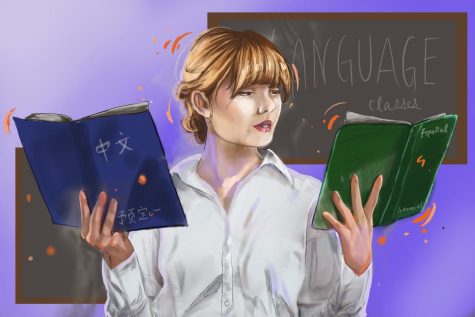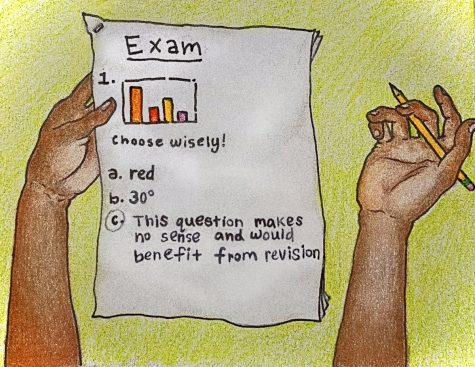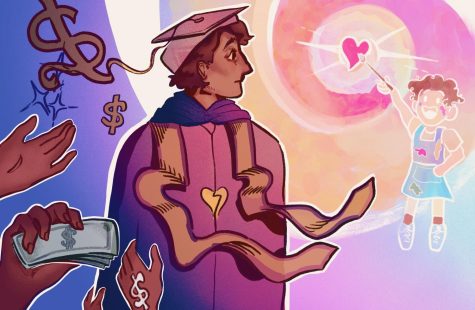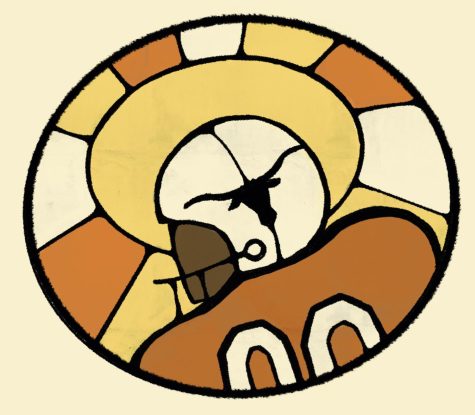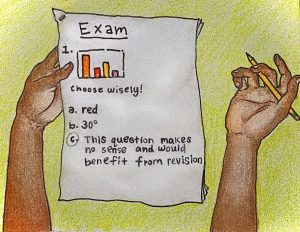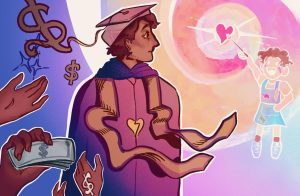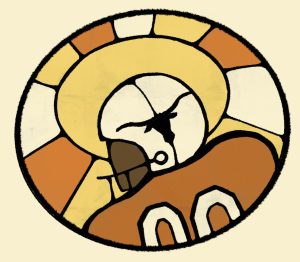Rethink “Keep Austin Weird”
March 10, 2023
A so-called “hippie hub,” Austin has become a beacon for not only academic prestige and Capitol proximity, but also for southern novelty. With a range of music scenes, outdoorsy culture and natural beauty, Austin quickly blossomed into a home for quirky Texan types. This exact reputation earned the city its “Keep Austin Weird” motto in the early 2000s.
However, more than two decades later and with over twice the population size, Austin’s former image has faced further scrutiny. The reality is this: “Keep Austin Weird” isn’t dead, but the slogan has shifted its meaning.
Growing up, I considered Austin my second home. My extended family lived near the lake, and our closeness meant frequent family reunions. But with each passing visit, I could sense a perceivable change in the city landscape. This difference only became apparent when the lakefront had been transformed from quaint bungalows to towering mansions.
Austin has a new reputation — unaffordable. Although a well-known housing crisis sweeps the city, the question of its “weirdness” still remains.
Lee Walker, adjunct Plan II professor and former President of Dell Computers, said the “Keep Austin Weird” motto is a cry for help. An Austin native since 1990, Walker barely recognizes present-day downtown.
“It’s heartbreaking to see (city of Austin workers) forced to be commuters into the city where they are asked to protect and serve,” Walker said.
Despite the change in scenery and influx of wealth, Austin’s weirdness hasn’t necessarily left the city — but a hard truth looms. As native Austinites continue to be pushed out of their homes, new money has transformed the city’s accessibility.
Austin increasingly caters to the wealthy, and the city’s facets of weirdness have become limited to individuals who can afford to stay and spend.
“I wish we could have better prepared for the inevitable,” Walker said.
Walker likens Austin’s growth to the idea of your favorite restaurant becoming popular.
“You’ve got a great restaurant, but guess what, it gets crowded and the line is around the block. And the problem is when you get to the menu, you can’t afford it,” Walker said. “But, it’s still a great restaurant.”
Walker’s analogy encapsulates many Austinites’ relationship with the city — a common experience of loving something niche before it’s discovered. Many still regard Austin as a special place to them, but their connection has since changed.
Merriam-Webster Dictionary defines weirdness as something “of strange or extraordinary character.” While cities naturally welcome and breed a variety of cultures, Austin stands out in stark fashion. Despite its recent transformation, my hometown of Houston could never compete with Austin’s eccentricity.
“I kind of expected (Austin) to be more hippie,” business junior Paul Toon said. “Austin’s weird, yeah, but it’s a lot of rich, weird people, not a lot of normal, weird people.”
However, signature Austin fixtures still nestle between the city’s new skyrises. Toon said he feels Austin’s most defining characteristics involve its music scene and people.
“Since I came to Austin, it’s just opened up an entirely new music scene, like new genres I’ve never even heard of,” Toon said. “(Austin) really takes all kinds of people — that was the biggest surprise.”
With regards to its original culture of small businesses, keeping Austin “weird” isn’t necessarily realistic amidst expanding gentrification. The meaning of Austin’s slogan now lies in the weirdness of its blended culture — the music and concurrent industrial rise.
Monday is a health and society and Plan II freshman from Houston, Texas.

